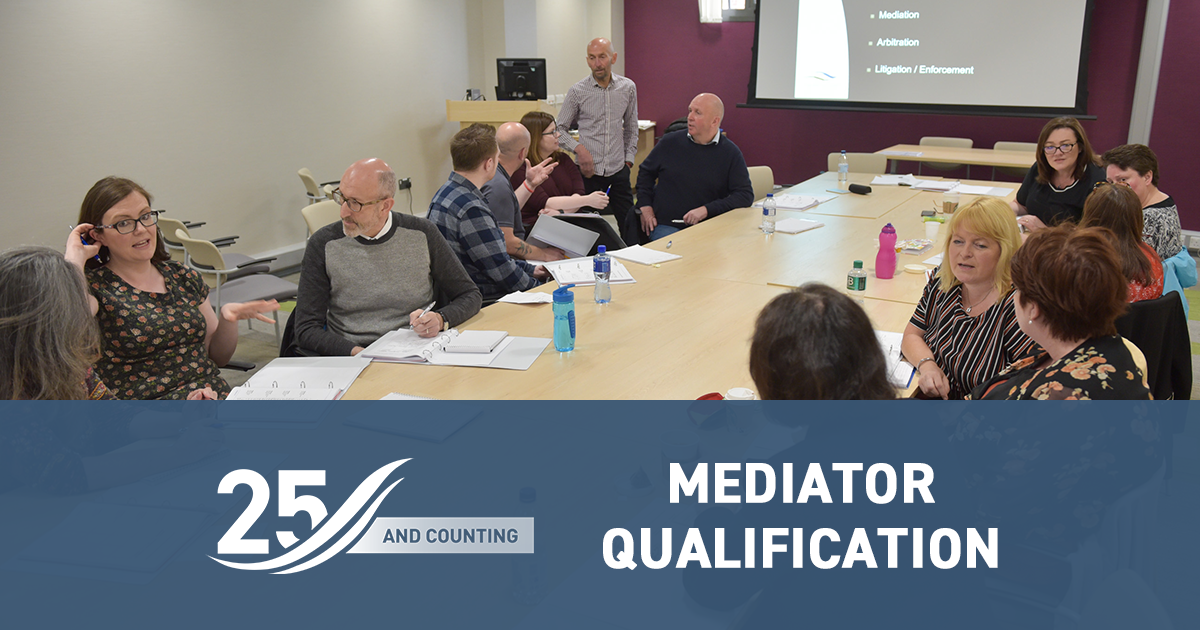
Posted on: March 25th, 2024

To celebrate our 25th Anniversary this year, we sit down with Founder, Dr Mike Talbot, to look back at some of the key moments in UK Mediation's history.
In the third entry of this series, we take a look at UK Mediation's own mediator qualification course, The Interpersonal Mediation Practitioner's Certificate (IMPC).
1. The Interpersonal Mediation Practitioner's Certificate (IMPC) is now a widely-recognised mediation qualification. Talk us through its inception.
Dr Mike Talbot: Around the time that we were putting our courses together, I could see that there was some confusion in the field between courses offering training for mediating divorce and separation ('Family' mediation), those offering training for commercial mediation, and then others that were geared towards community, workplace, SEND, homelessness prevention, and more. Some of the new courses that were appearing around that time even claimed to be for ALL types of disputes!
What I wanted to do was to cut through this confusion, so we devised our course specifically for what we began to call Interpersonal Mediation, for the kind of process that would be applied to any kind of dispute where the object is to restore a relationship: to get people talking. This could then be applied to neighbourhood disputes, workplace disputes, family disputes where the aim is to rebuild family relationships, or to some complaints. We wanted to distinguish this kind of mediation from family mediation and commercial mediation, both of which require a different process.
2. What sets the IMPC apart from other qualifications available in the mediation training field?
MT: As well as being applicable to any kind of interpersonal dispute, the course is unique in that it is specifically about restoring relationships from the standpoint of the psychology of conflict: understanding the people who are in dispute as a means to getting to the heart of the conflict, and ultimately to its resolution.
3. Originally offered as a Level 3 training course, you upgraded the qualification to Level 4 in 2013. What went into this decision?
MT: After some years of providing our Level 3 qualification with the Open College Network, we decided that perhaps something more was needed. We wanted to give people an additional element in their training that would allow them to practise reflectively after their training was completed, and to have a capacity for critical self-evaluation so that they could continually improve and develop as mediators. This meant developing a Level 4 course, which in turn required us to switch our accrediting body over to AIM Qualifications.
So, we now have the only Level four course around, externally accredited and part of the Register of Regulated Qualifications, overseen by Ofqual, the UK's regulator of qualifications, exams, and assessments. And as a Level 4 course, it is the only one that sets people up for lifelong learning as professional interpersonal mediators.
4. You're no stranger to delivering this course as part of our training panel, especially in the early days of UK Mediation. What's been your most memorable training experience while delivering the IMPC?
MT: Wow, well we’ve trained around 7,000 people to the accredited level since 1999, and a whole lot more than that on our short courses, so that’s a lot of training experiences. These days, I provide support to our amazing panel of trainers, rather than delivering myself, but as you say, for quite a while I was out delivering the course myself.
Running the training in Jordan with an Arabic translator was quite an experience; running it with some hearing impaired learners and a BSL interpreter next to me the whole week was also fascinating. Some of the time, dealing with the interpersonal dynamics in the training group itself can be a great experience: where we get a golden opportunity to practise what we preach!